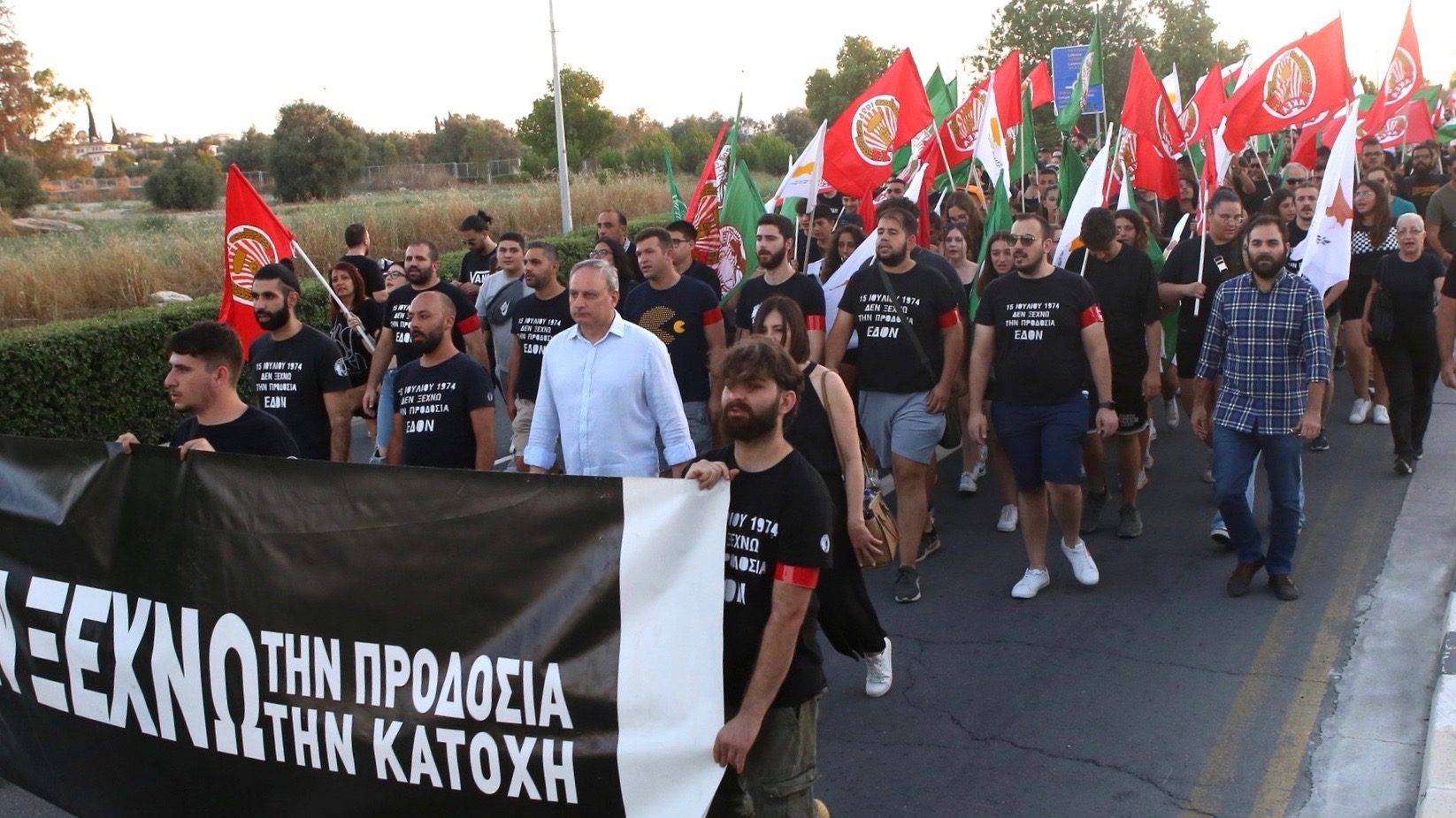On Friday, July 14, progressive, anti-imperialist political parties, and youth groups organized a rally and an event of remembrance in Nicosia to honor the victims of the military coup in Cyprus that took place on July 15, 1974. Cadres of the Progressive Party of Working People (AKEL) and the United Democratic Youth Organisation (EDON) participated in the events, reiterating: ‘We do not forget treason, we do not forget occupation.’ The 1974 military coup against Makarios III and his government— perpetrated by Greek nationalist extremists and paramilitaries in Cyprus like the EOKA-B, which were backed the military junta in Greece—turned into a bloody civil war that paved the way for the Turkish invasion of the island on July 20, 1974, and the occupation of Northern Cyprus which continues till today.
The British colonial administration that directly ruled Cyprus between 1914 and 1960 had purposefully tried to divide the islanders on ethnic lines to weaken the growing independence movement. Even after attaining independence from the British in 1960, ethnic tensions prevailed between the Greek and Turkish Cypriots. Hyper-nationalists on both sides, with the backing of the Greek and Turkish establishments, confronted each other, causing the escalation of the ethnic conflict during 1963-64. Later, the coup backed by the Greek military in 1974 and the Turkish military’s response resulted in the de-facto division of the country on ethnic lines and the internal displacement of thousands of Cypriots. The violent clashes that followed the coup and the Turkish invasion resulted in the deaths, injuries, and disappearance of thousands of civilians and military personnel. Even though the coup regime in Cyprus—which proclaimed the ‘Hellenic Republic of Cyprus’, intended to integrate Cyprus into Greece—was short-lived, the junta persecuted the supporters of Makarios III, communists, trade unionists from AKEL, and others.
On November 15, 1983, the Turkish-controlled northern areas of Cyprus unilaterally declared independence and proclaimed the establishment of the Turkish Republic of Northern Cyprus, which was rejected by the Republic of Cyprus, the UN, and others, and recognized only by Turkey.
Progressive sections on the island now observe the anniversaries of the military coup and the Turkish invasion as ‘Black anniversaries’ and are trying to achieve unity and peace between the Greek and Turkish Cypriot communities on the divided island. However, the ongoing Turkish occupation of Northern Cyprus and hyper-nationalist sections in both communities have been impeding the peace process. The hyper-nationalist sections among Greek Cypriots have been trying to reinstate the perpetrators of the 1974 coup and ethnocide, for example, the Greek Cypriot paramilitary leader Georgios Grivas.
While addressing the mobilization in Nicosia on July 14, S. Stefanou, the secretary general of AKEL, stated, “to honor — truly and sincerely — the sacrifice of our heroes, one must also honor the truth about their sacrifice. History cannot be written unless we talk about the Turkish invasion, the coup d’état, the junta, EOKA B, and NATO. These people committed a crime without punishment. But there can be no crime without criminals, treason without traitors.”
He added that “If the Cyprus problem is brought again to the negotiating tracks and the President of the Republic of Cyprus moves in the right direction, AKEL will support efforts for a bizonal, bicommunal federation solution with political equality, as it has done in the past. For us, the solution to the Cyprus problem is paramount and above all.”





